School of Graduate Studies
How to apply, 1. choose your program.
Explore our programs. Chances are, we’ve got what you’re looking for.
View / download our Graduate Student Viewbook (2023–24) for more information (PDF) .

2. Learn about Admissions Requirements
Confirm your program’s admission requirements by consulting the SGS Calendar . Visit your graduate unit’s website to confirm application procedures and deadlines. Some requirements you should consider: prerequisite degrees and courses, minimum GPA, application deadlines, and confirmation of supervision
3. Prepare Your Application
Review all the admission requirements for your chosen program. Plan enough time to submit your application and all supporting documents before the deadline. Note that referees will only receive reference requests when you pay the application fee, so give your referees plenty of time to submit their references.
4. Apply Online
Apply through GradApp .
You will create a personal profile and begin the submission. Set aside 30-60 minutes to create a personal profile on our online application system, including your personal information and academic history. Please note that you will not be able to make changes to this information after paying the application fee.
Frequently Asked Questions
Wondering how to apply from overseas? Looking for a supervisor? Search the FAQs and get the answers you need.
Financial Support
Do you have questions about your financial situation? Reach out to your Graduate Unit for more information about funding packages. For details about awards, scholarships and emergency funding, explore the opportunities .
Doctoral-stream graduate programs at the University of Toronto offer a range of financial supports to graduate students to offset the cost of their graduate education.
- Connect with us
- Hire Rotman Talent
- Upcoming events
- Media Centre
- Milt Harris Library
- Compare degree programs
- Purpose and values
- Compare professional development programs
/prod01/prod01/media/rotman/content-assets/images/areas/news-hub/2022/Susan-Christoffersen-INSET.png)
PhD Program
Pursue Excellence, Drive Change, Lead Globally
/filters:format(webp)/523x0:1078x1200/prod01/prod01/media/rotman/content-assets/images/rotman-building---interior-exterior-and-facilities/Rotman20Building20Main.jpg)
5 year full-time program
On campus in-person Toronto, Ontario, Canada
Attend Rotman seminars
Applications for Fall 2025 are now open. Apply here . Application deadline is January 10, 2025. We are offering application fee waivers for the first 60 qualified students from underrepresented groups as well as students from conflict regions. Please note that applicants must meet admission requirements, complete their admission application, submit all required documentation including transcripts, CV, Letter of Intent and English Language Proficiency Test scores, if applicable, as well as apply for the application fee waiver .
- Major Areas of Study
- Financial Info
- PhD Student Profiles
- Students on the Market
- Our Placements
- Student Housing
Join a close-knit community of scholars at one of the world’s top-ranked centres of management research – at the University of Toronto, in the heart of Canada’s vibrant, culturally diverse financial capital. As part of Rotman’s PhD program, you’ll explore new ideas, develop insights that inspire solutions and help to spark broader conversations among corporate and public leaders.
The PhD in Management is a challenging 5 year program which features course-work, cutting edge research training, and close working relationships with some of the best management academics in the world. The success of our program is evidenced in the impressive careers of our graduates.
PhD students work closely with faculty in our research-led culture which emphasizes rigor, creativity and innovation. The PhD curriculum is carefully designed to support students as publishing scholars as early as possible in their doctoral studies and we have a terrific track record of placements in leading business schools. Our program is divided into 7 distinct streams of research: Accounting , Economic Analysis and Policy , Finance , Marketing , Operations Management and Statistics , Organizational Behaviour and Human Resource Management , and Strategic Management .
Rotman Welcomes You to Toronto
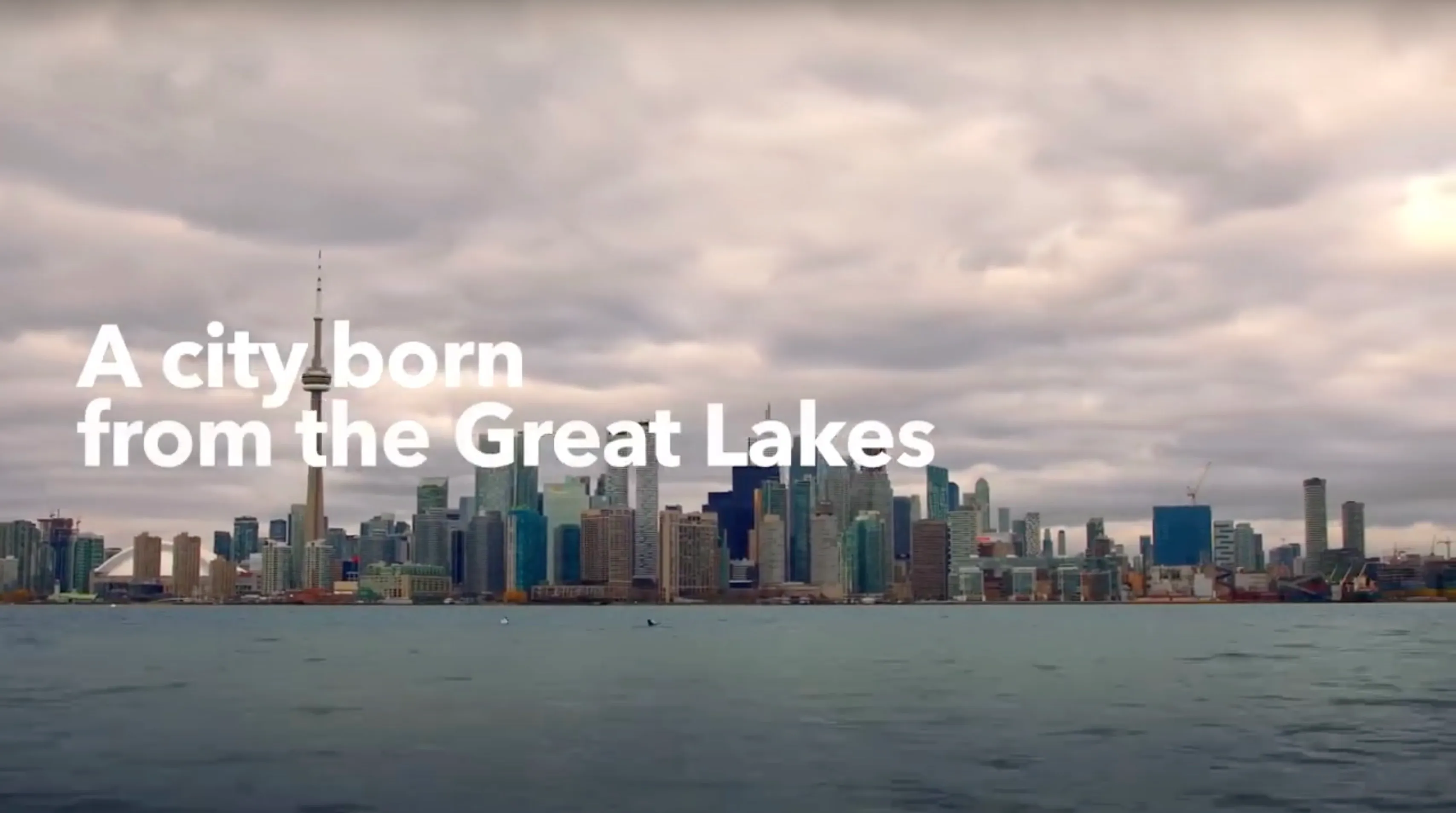
The Rotman School is ranked 16th in the world by the Financial Times for its faculty and research. PhD students at Rotman enjoy an academic culture of collaboration and research excellence. Our doctoral program is delivered in seven streams that reflect the organization of the school as a whole:
- Economic Analysis and Policy
- Organizational Behaviour and Human Resource Management
- Operations Management and Statistics
- Strategic Management
PhD students at Rotman study in small classes and form close working relationships with faculty. Take a moment to get to know our program requirements. If you are a strong candidate with an appetite for academic excellence, we encourage you to contact us to learn more about the Rotman PhD.
The Rotman PhD is for ambitious scholars who plan to teach and research at some of the world's top business schools. If you are looking to study with leading faculty, publish in noted academic journals, and build a global network of like-minded scholars, the Rotman PhD program is for you. Our goal is to prepare our PhD students for exceptional careers in the field of management, and all aspects of the doctoral program are developed with your professional goals in mind. Find out how the Rotman School at the University of Toronto has been the launching pad for many stellar academic careers.
Rotman PhDs on the Market
Research at Rotman
Careers: After the Rotman PhD
Rotman PhD Courses
2024-2025 phd course schedule.
Please view the Course Schedule above for the list of current courses.
Grade Reviews and Academic Appeals
Graduate students have the right to dispute substantive or procedural academic matters, such as grades, evaluations of comprehensive exams and other program requirements, decisions regarding their continuation in a program, or any other decisions related to the application of academic regulations. Initially, students should try to resolve the issue with the instructor or relevant individual involved. If the issue remains unresolved and the student wishes to pursue it further, they should discuss it with the Graduate Coordinator or the Program Director. EXCEPTION: Appeals related to failure of a final oral examination or related to termination of registration in a program should be made directly to the SGS Graduate Academic Appeals Board (see SGS Calendar entry on Academic Appeals). All academic appeals, except for those specified as exceptions above, must be initiated within the student's primary graduate unit, unless the appeal pertains to courses from outside that unit. Appeals concerning courses taken outside the student's home department should be handled by the department that offered the course. The chair of the student’s home department will be informed. The student must submit an appeal within eight weeks of the decision being contested. The request must be made in writing using a Notice of Appeal Form (PDF) submitted to the PhD Program Office ( room 1050 at 105 St. George Street or by email: [email protected] ) and it will then be considered by the Graduate Department Academic Appeals Committee (GDAAC).
Details regarding the filing of appeal can be found here . After following these steps students have the option to appeal to the Graduate Academic Appeals Board (GAAB) (PDF) . Students must file a Notice of Appeal Form (PDF) to initiative the process within eight weeks of receipt of the communication at the immediately prior level of appeal.
Graduate Department Academic Appeals Committee
The Graduate Department Academic Appeals Committee (GDAAC) is formed under the authority of the Vice Dean of MBA Programs and the Vice Dean of Undergraduate and Specialized Programs (collectively referred to as the “Vice Dean”) at the start of each academic year. The Committee serves in an advisory capacity to the Vice Deans, who make decisions based on the Committee's recommendations. Committee members may serve for multiple years.
Within the academic appeals process, the GDAAC possesses significant discipline-specific expertise to evaluate academic matters in appeals and plays a crucial role in the overall procedure. The committee can only consider academic issues. Decisions regarding admission to academic programs are not eligible for appeal, and the committee does not address non-academic matters (such as fees).
Rotman GDAAC Membership for 2024-25 Committee Officers:
- Chair : Geoffrey Leonardelli
- Chair Alternate : Jeff Callen
- Secretary : Curtis Lake
Voting Members, Faculty:
- Geoffrey Leonardelli
- Jeff Callen
- Francesco Bova
- Ralph Tassone
- Faculty Alternates : John Oesch, Becky Reuber, Kevin Wang
Voting Member, Student:
- Samhita Srinivasan (VP Academic, GBC)
- Student Alternate : Chandra Piduri (Academics Manager, GBC)
GDAAC enquiries may be directed to [email protected]
Student Life
Are you a promising scholar driven to achieve success in your studies? At Rotman we believe that your success is fueled by support that extends well beyond scholarship. Your ability to achieve both during the program and after graduation depends on strong networks with faculty and your peers. We aim to give you the tools you need to complete your program while achieving a balanced life outside of the classroom. Whether you're looking for a new living arrangement, wanting to attend a research event, or wondering how previous students experienced their doctorate, the Rotman Phd progam has the support you need to succeed. Find out what it's like to study at one of the world's top business schools, and live in Toronto, Canada's cultural and financial capital. Finding a Place to Stay Research Seminars at Rotman University of Toronto
Daphne Baldassari, Rotman PhD'23: Dare to Risk
Board games and pizza night, rotman phd: leading the world in research, rotman phd: from support to strength.
Select up to 3 programs to compare

Universal Navigation
Universal navigation2.
- Staff Positions
Search form

Graduate Program
Please explore our Graduate Programs through the links provided below:
- About our Graduate Program
- Program Information
- Admissions Requirements & Procedures
- Program Requirements
- Tuition & Funding
- PhD Program Completion
- PhD Defenses
- Course Descriptions: 2024-25
- Course Listings: 2024-25
- Graduate Studies Handbook
- Forms & Resources
- Scholarships & Awards
- Career Information
- Mathematics Graduate Students Association
- Request new password
Site Navigation
Undergraduate programs.
- Bachelor of Information
Graduate Programs
- Master of Information
Concentrations
- Archives and Records Management
- Culture and Technology
- Critical Information Policy Studies
- Human-Centred Data Science
- Information Systems and Design
- Knowledge Management and Information Management
- Library and Information Science
- User Experience Design
- Master of Museum Studies
- Combined Degree Program
- PhD Funding
- Current PhD Students
- Collaborative Specializations
Future Students
Application Information
- Apply to the Bachelor of Information (BI)
- Apply to Master’s Programs (MI, MMSt, CDP)
- Apply to the PhD in Information
General Information
- Undergraduate Admissions Events and Tours
- Graduate Admissions Events and Tours
- Newly Admitted Students
Current Students
- Undergraduate Students
Graduate Students
- Graduate Course Timetable
- PhD Student Profiles
All Students
- Course Directory
- Academic Dates and Deadlines
- Scholarships and Awards
- Office of the Registrar and Student Services
- Resources and Supports
- Student Life
Research Areas
- All Research Areas
Research Groups
Centre for culture and technology, digital curation institute, knowledge media design institute (kmdi), student research.
- PhD Dissertations
- Master of Information Theses
- Master of Museum Studies Theses
- Equity, Diversity and Inclusion
- Trainings, Workshops and Events
- EDI Complaints
- EDI Student Initiatives Fund
Get Involved
- Alumni Events
- Faculty of Information Alumni Association
- Perks and Professional Development
Placeholder
- Donate Online
- Other Ways to Give
- Virtual Donor Wall
Career Services
- Access Symplicity
For Students
- Career Services for Students
- Bachelor of Information Practicum
- Master of Information Co-op
- Master of Information Practicum
- Master of Museum Studies Internships
- Museum Studies Capstone Projects
For Employers
- Career Services for Employers
- Intranet/SharePoint (limited access)

Site Search
Top search results, phd in information, what is a phd in information.
The PhD in Information is a four-year advanced research degree, attracting students from a wide range of backgrounds, who conduct research at the intersection of information, technology, culture, people, and communities.
Program Features
- Media, Technology and Culture option
- Four years of funding
- Upcoming admission events
- inquire. ischool @utoronto. ca

An Interdisciplinary Doctoral Program
The Faculty of Information doctoral program is comprised of coursework and dissertation components. It allows students to pursue high-level research into the interactions between information, technology, culture, people and communities.
Right in the heart of Toronto, the world’s most diverse city, the Faculty is located at the center of a thriving campus. This provides an inspiring background to engage in influential research into critically relevant questions that bridge aspects of technology and society, connecting theory and practice.
Our doctoral students come from a wide range of scholarly and professional fields to work with faculty from backgrounds matched to their specific research interests in terms of subject matter expertise and complementary knowledge.
The Faculty of Information is known for its interdisciplinary excellence as well as the research partnership opportunities it offers within the Faculty, the University of Toronto and beyond.
Faculty of Information PhD graduates have gone on to play prominent roles in academia, industry, government and the non-profit sector.
The Faculty of Information Offers:
- Excellent career opportunities in a dynamic international research community
- A structured PhD program with innovative curriculum
- Challenging and cutting-edge research projects
- World-leading university in the heart of a vibrant, diverse city
- Individual supervision and mentoring by globally recognized faculty
- More than 70 distinguished and internationally recognized faculty
- Full funding for international and Canadian students

The Faculty of Information currently focuses on several key research areas. These include:
Research centres.
The Faculty of Information is home to a number of research centres, institutes and incubators. Doctoral students often carry out their dissertation research under the auspices of these groups. More information can be found at the links listed below, or by contacting affiliated faculty members:

Identity Privacy and Security Institute

GLAM Incubator

Communication, Organization of Knowledge, Information Ecosystems (COoKIE) Group

Human-Centered Data Science Lab

Just Sustainability Design Lab

Collaboratory for Black Poiēsis
Academic requirements.
The Faculty of Information’s PhD program is a full-time program. The customary program length for full-time doctoral study is four years. While our PhD program is officially a four-year program, by custom, our Faculty recognizes that five years is an acceptable time to completion and may extend, if necessary, to a maximum of six years. PhD students must be regularly registered in the School of Graduate Studies (SGS) during each year of their program.
To maintain satisfactory progress, a student must:
- Complete the course requirements by the end of Year 1
- Complete all required electives before the Qualifying Exam
- Complete the Qualifying Exam before the end of Year 2
- Successfully defend the thesis proposal and achieve candidacy by the end of Year 3
- Successfully defend the thesis by the end of Year 4
Helpful Documents
- PhD Handbook
- PhD Qualifying Exam Procedure
- PhD Qualifying Exam Report Template (to be completed by Research Advisor)
- Procedure for Doctoral Thesis Proposal and Oral Defence
- Thesis Proposal Defence Report (to be completed by Chair of the Defense)
- Guidance on Timeline for Final Oral Examination
- Doctoral Candidate Pre-Defence/Final Oral Exam (FOE) Thesis Submission Form
- Publication-based Theis FAQs
- Example of Contract
- INF3006Y Contract Template
- Example of Reading Course Syllabus
2025 and Later
Doctoral students must complete 3.5 full-course equivalents (FCEs) as follows:
INF 3001H Research Colloquium (0.5 FCE)
One course from each of the following areas (1.5 FCE in total):
- Knowledge Domain
- Research Methods and Design
- Design, Applied, and Creative Practice
One additional course (0.5 FCE) from any of the above areas.
1.0 FCE in elective courses from anywhere at the University of Toronto.
Doctoral students in the Media, Technology and Culture concentration of the PhD program, the 4.0 full-course equivalents (FCEs) must be completed as follows:
INF3001H Research Colloquium 0.5 Credits
INF3012H Social Scientific Methods for Media 0.5 Credits
INF3014H Cultural Interpretive Methods for Media and Technology 0.5 Credits
Course selection to be determined in consultation with the student’s research advisor
INF3009H Theory and History of Media Technology 0.5 Credits
INF3010H Power, Media and Technology 0.5 Credits
2.0 FCEs in elective courses relevant to Media, Technology and Culture (this list of courses will be updated every year)
Students will work closely with an advisor to decide if they should enrol in the MTC concentration. Once a student and their advisor have determined the best path for the student, follow these instructions to select the MTC concentration on ACORN:
- Changes to enrolment in the MTC concentration can be made any time before achieving candidacy.
- Once candidacy has been reached, requests for changes in MTC concentration enrolment will only be considered for exceptional circumstances.
Following coursework, which typically takes two years, students must:
Pass a qualifying exam
Present and defend a thesis research proposal
Complete a thesis and pass a Doctoral Final Oral Examination
2024 and Earlier
Doctoral students must complete 4.0 full-course equivalents (FCEs) as follows:
A methods course (0.5 FCE): INF 3003H Research in Information: Frameworks and Design or a specific methods course to be determined in consultation with the student’s research advisor
INF 3006Y Major Area Reading Course (1.0 FCE) or two additional electives to be determined in consultation with the student’s research advisor (1.0 FCE)
2.0 FCEs of elective courses
Doctoral students in the Media, Technology and Culture concentration complete 4.0 full-course equivalents (FCEs) as follows:
PhD Graduates: Where are they now?
Julian posada (phd, class of 2022).
Julian currently serves as an Assistant Professor of American Studies at Yale University where he is a member of the Information Society Project at Yale Law School and the Yale Institute for Foundations of Data Science.
Niel Chah (PhD, Class of 2022)
Niel is putting his PhD to use as a Data Scientist with Microsoft’s Gaming Group. His Xbox team is based in Redmond, Washington but Chah works remotely from his hometown of Vancouver. As part of the data science group within gaming, he’s involved in natural language processing, using statistical techniques and models to help Xbox understand what users are saying.

Admission and Applications
More details about admissions requirements and the application process can be found on the Admission and Applications Requirements page.
PhD Peer Mentorship
The University of Toronto Faculty of Information (FoI) or iSchool PhD Peer Mentorship Program aims to support prospective Ph.D. applicants from communities that have historically been underrepresented in higher education, though it is open to all applicants. This includes, but is not limited to:
- BIPOC (Black, Indigenous, and People of Color) individuals
- Trans*, non-binary, and LGBT+/queer communities
- People with disabilities and/or chronic illness
- First-generation college students
- Individuals from low-income backgrounds
- People from low/middle income countries
Connect with current doctoral students to receive insights, advice, and guidance for preparing an application to the iSchool. Whether you need feedback on your application materials, want to learn more about the program, or just need someone to guide you, our mentors are ready to help you succeed.
Sign up to be a mentee here: https://docs.google.com/forms/d/e/1FAIpQLSdVa6vyKDcFQrlz0-WBTx2jfJ69prO62Ck4XTTPsMD8KcLjSg/viewform
For any questions about the application process, the doctoral program, and living in Toronto, please refer to the FAQ document here: FAQ_Mentees.docx
For any questions about the Peer mentorship program, please contact the Doctoral Student Association at ischool. dsa. ut @gmail. com
PhD students receive a minimum funding package of $18,500 per year for 4 years, which comes in the form of tuition and fees, a TAship, and Faculty scholarship. Starting in Fall 2025, PhD students receive a minimum funding package of $40,000. In the fifth year, the Faculty pays tuition and fees. In all years, students build on their minimum funding package by receiving RAships, external grants, awards, scholarships, fellowships, and additional TAships from any unit across campus. As students enter their final year in the program, they are especially encouraged to apply for the Doctoral Completion Award.
Detailed information about awards available to PhD students can be found on the PhD Awards page.
Latest News

Faculty of Information at ACM Conference on Computer-Supported Cooperative Work
Faculty of Information professors and students will have a strong presence at the 27th ACM SIGCHI Conference on Computer-Supported Cooperative Work & Social Computing (CSCW) taking place in San José, Costa Rica next week (November 9-13). CSCW is the premier venue for research in the design and use of technologies that affect groups, organizations, communities, and […]

Congratulations to our newest grads!
The Faculty of Information celebrated its newest grads on October 30. A total of 105 Master of Information students received their degrees alongside one Master of Museum Studies student and five PhD students. Congratulations to all 112 of our Fall 2024 grads. Photos from the ceremony and reception are now available to browse and download.

As Jackman Fellow, PhD student Hassan Asif will explore underground Islamic media
PhD student Hassan Asif, who has just been named a Chancellor Jackman Graduate Fellow in the Humanities, plans to use his fellowship to advance his dissertation, which explores the intersection of digital media, remix culture and Islamic devotional music in Pakistan. His project examines the digital remixing of na’at, which are hymns in praise […]

Virtual influencers in three minutes or less
Congratulations to PhD student Julia Jeonghyun Parke, a top 20 finalist in the SSHRC’s 2024 Storytellers Challenge. This annual contest challenges postsecondary students to show Canadians, in up to three minutes, how social sciences and humanities research is affecting our lives, our world and our future for the better. For her research, Parke tracks the […]
How do I become a PhD student at the Faculty of Information?

- Instructors
- Publications
- Working papers
- Undergraduate
- Policy School
- Announcements
Check the latest UofT COVID-19 updates more information
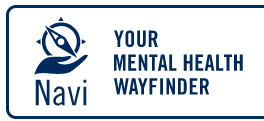
PhD program admission requirements
Degree and course requirements.
Applicants must have completed, or be in the process of completing a master's degree in economics or a related field with an average of at least B+, or have completed, or be in the process of completing a bachelor’s degree in economics or a related field with an average of at least A- in the final two years of study.
We offer both regular-entry and direct-entry PhD programs. The regular-entry program is open only to students who will have completed the requirements for a master’s degree in economics or a related field by September of the year for which they are applying. Students who do not expect to satisfy this condition should apply to the direct-entry program . In particular, applicants currently in the final year of a bachelor’s program should apply for the direct-entry PhD. Under no circumstances should you apply to both the regular-entry and the direct-entry PhD program. Applicants to the direct-entry program will be asked whether they wish to be considered for the Economics MA program should their PhD application be unsuccessful.
Applicants educated in a country other than Canada should check the equivalent qualifications table prior to starting the online admission application (not all bachelor’s or master's degrees are equivalent to the corresponding degree from the University of Toronto). The PhD is a full-time program. It is not possible to pursue a PhD on a part-time basis. Candidates are required to remain in full-time attendance for the first three years of the program. There is one admission date, in September. There is no January admission.
Applicants must have a strong preparation in advanced mathematics, statistics, and economics, including courses in microeconomic theory, macroeconomic theory, and econometrics or statistics.
Please note that meeting these minimum requirements does not imply automatic acceptance into the program. (See the PhD FAQ for the typical profile of a successful applicant.)
The admission process
Please read in full the application information and instructions prior to starting the university's online application to ensure you have informed yourself on essential information including: application deadlines, application processing time, planning for your application submission, how to apply, contact information and the application assessment process.
Once the university's online application form has been completed and the application fee paid (final deadline January 17, 2025), applicants will receive an email message from the Department of Economics with a link to a supplementary form. When this form is completed and the Economics Graduate Office has received all required supporting documentation (final deadline January 17, 2025), the department will begin to review and assess the application. To avoid any issues, we strongly advise applicants to complete their application and supplementary form well in advance of the deadline. To be considered for certain prestigious scholarships, such as the Connaught or Trillium scholarship, the application must be completed by January 17, 2025, including all required supporting documentation.
The application assessment process
The files of applicants who meet the minimum requirements, submit all the required documents by the deadline will be reviewed by the Department of Economics Admissions Committee. Note: The meeting of these requirements is only a necessary condition, not a sufficient condition, for acceptance into the program. The Admissions Committee normally starts to make first round offers from mid-March through early April and may continue with subsequent rounds of offers until June. All applicants will be notified either with an offer of admission or rejection of their application by the end of June.
Please also see our PhD FAQ page for the answers to commonly asked questions.
Department of Economics University of Toronto Max Gluskin House 150 St. George Street Toronto, Ontario M5S 3G7, Canada (416) 978-4622
- University of Toronto
- Faculty of Arts & Science
- UTM Economics
- --> --> --> --> --> -->
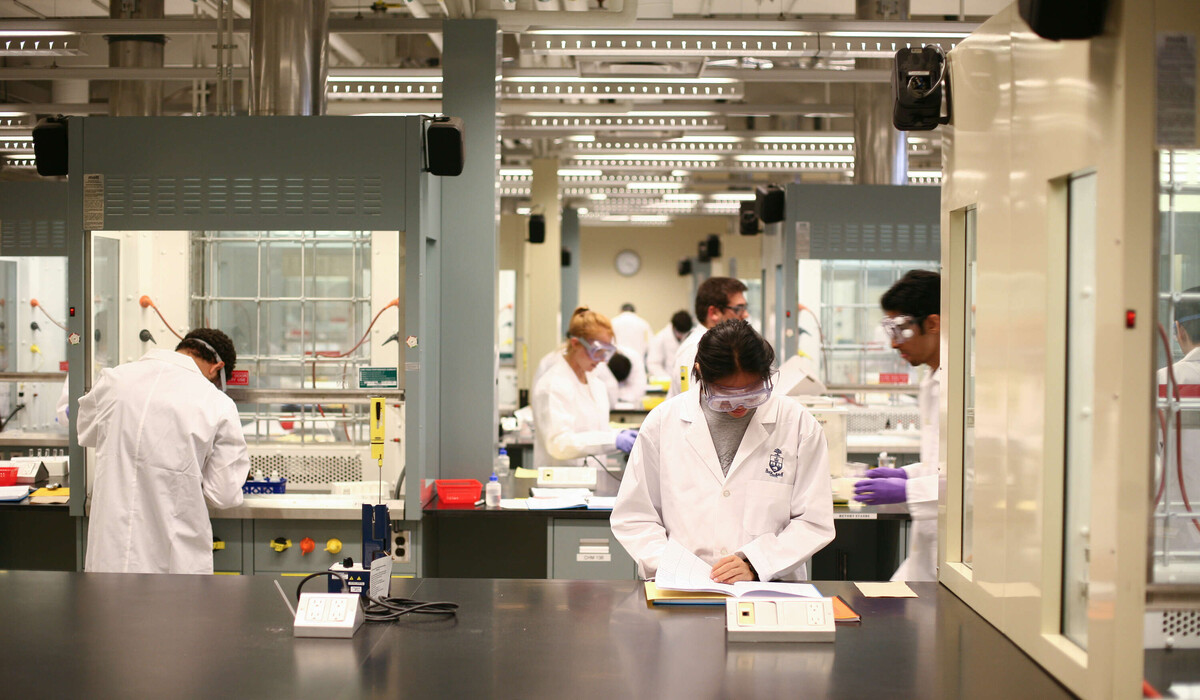
MD/PhD Program
Our MD/PhD Program, the largest national program of its kind, trains and mentors the next generation of physician scientists.
Physician scientists are trained as medical doctors and scientists. They are in the unique position of pursuing both scientific research and clinical practice, translating academic excellence into health care excellence for Canadians every day. Our program attracts the very best medical researchers to U of T PhD programs, and has produced successive generations of innovative health leaders. Through collaborative and interdisciplinary research, we are advancing medicine and improving health around the world.
The MD/PhD Program trains physician scientists who are well prepared for both research and clinical practice, highly competitive and productive.
You may apply for admission into the MD/PhD Program at the same time as your MD application, or during your first year of medical school at U of T.
Research Training Opportunities
We have a wide array of research training opportunities available.
Research Application Support Initiative (RASI)
RASI is offered through the Community of Support and includes MD and MD/PhD student support with developing research CVs, publishing research, and finding research positions.
Black Student Application Program
The MD/PhD Program encourages applications for both the MD/PhD Program and BSAP.
Indigenous Student Application Program
Indigenous applicants are welcome to apply through both ISAP and the MD/PhD Program.
We live during a time of remarkable advances in the sciences that span the expanse of biomedical to health services research. Indeed, there has never been a time when it is so exciting to do science; never has there been such potential for discovery and application of these discoveries for the benefit of human health. Nicola Jones, MD, PhD, MD/PhD Program Director
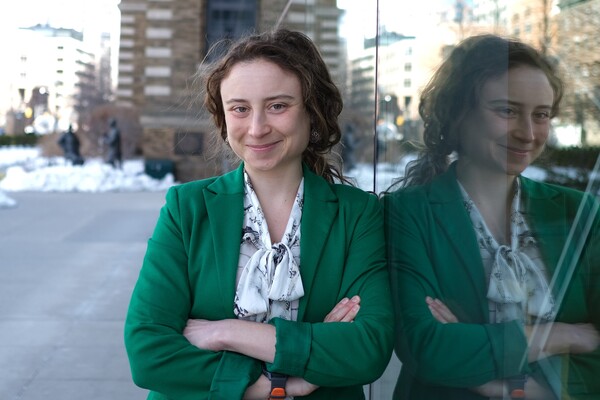
MD/PhD student Hannah Kozlowski receives inaugural future leaders prize
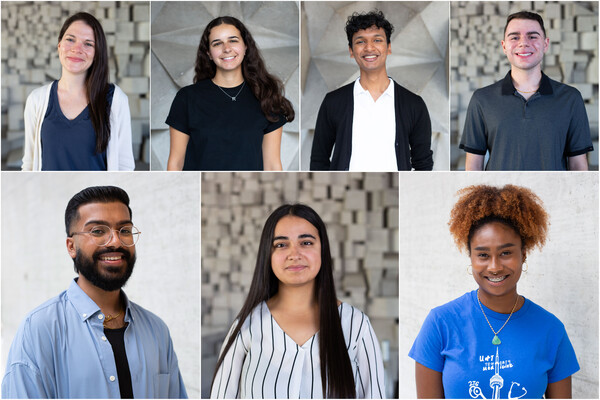
Class of 2T6: What Drives Your Passion for Medicine?

Faces of Temerty Medicine: Mitch De Snoo

IMAGES